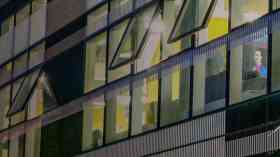Action Mats create resources for primary and early years children focussing on movement skills and active learning.
Supplier Focus
Latest Supplier News
Borg & Overström is a UK manufacturer of premium drinking water solutions. For over 20 years Borg & Overström has developed sustainable, bottle-less, hygienic, drinking water dispensers with the aim to provide exceptional, safe, self-service drinking water into schools, universities, workplaces and communal spaces.

 Walking into Perry Beeches school, any trepidation about encountering large and intimidating groups of youngsters melts away. The school is a haven for respect, hard work and achievement, with both pupils and staff seemingly happy to be there.
Walking into Perry Beeches school, any trepidation about encountering large and intimidating groups of youngsters melts away. The school is a haven for respect, hard work and achievement, with both pupils and staff seemingly happy to be there.








